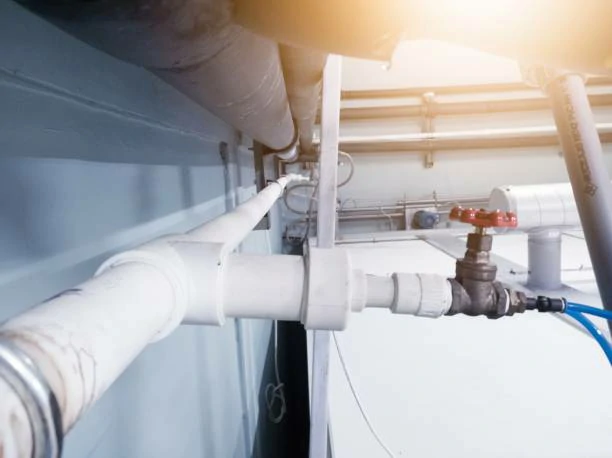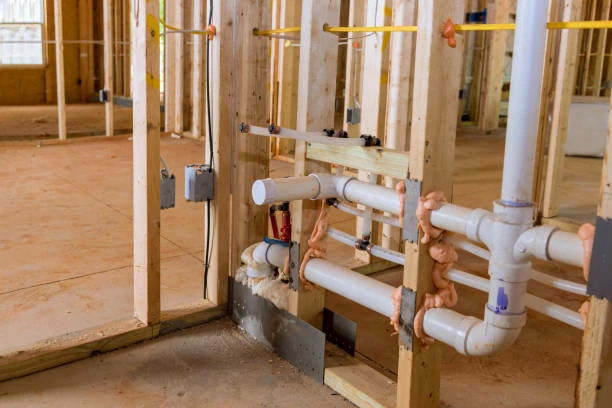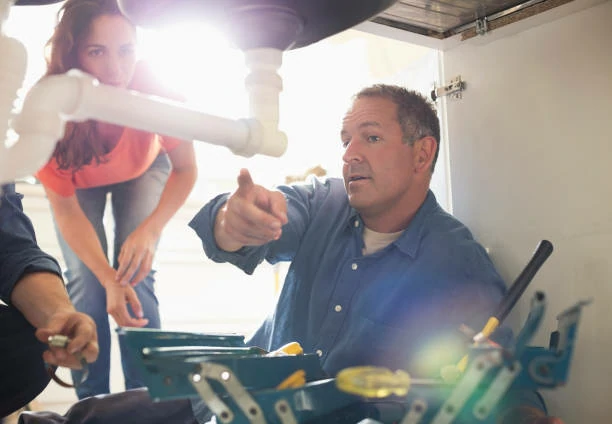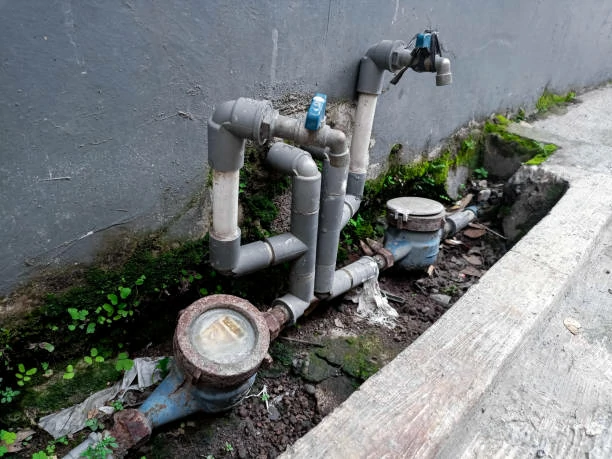PVC plumbing plays a critical role in ensuring the delivery of clean, safe water to homes and businesses. Its inherent properties and technological advancements make it a preferred material for plumbing systems that prioritize water quality. This article will explore how PVC plumbing contributes to improving water quality, focusing on its material composition, resistance to contamination, and the role of proper installation and maintenance.
Inert Material Composition
The composition of PVC (polyvinyl chloride) contributes significantly to water quality improvement. PVC’s inert nature means it does not react with water or the chemicals typically found in water supplies. Unlike some metals, PVC does not corrode or leach harmful substances into the water, ensuring that the water remains free from contaminants. This inert quality makes PVC particularly suitable for transporting drinking water. It prevents any interaction between the pipe material and the water, preserving the water’s original quality as it flows through the plumbing system. The material’s chemical stability ensures that water remains uncontaminated from the source to the tap.
Resistance to Biofilm Formation
Biofilm formation in pipes can pose a significant risk to water quality. Biofilms, which consist of microorganisms and their byproducts, can develop on the inner surfaces of pipes, leading to bacterial growth and potential health hazards. PVC plumbing resists biofilm formation more effectively than many other materials. The smooth interior surface of PVC pipes minimizes the areas where microorganisms can adhere and grow. This smoothness reduces the likelihood of bacterial colonies establishing themselves inside the pipes, thereby maintaining the purity of the water. Additionally, the absence of micro-cracks or pores in PVC pipes further reduces the chances of biofilm development.
Non-Toxicity and Safety Standards
PVC plumbing complies with rigorous safety standards that ensure its suitability for drinking water applications. Regulatory bodies worldwide have approved PVC for use in potable water systems due to its non-toxic nature. Unlike some older plumbing materials, PVC does not contain lead or other harmful metals that could leach into the water. Manufacturers also produce PVC pipes under strict quality controls, ensuring they meet the standards for drinking water safety. These standards guarantee that PVC plumbing does not introduce any harmful chemicals or compounds into the water, making it a reliable choice for maintaining high water quality.
Prevention of External Contamination
External factors can sometimes compromise water quality, especially when pipes come into contact with contaminated soil or chemicals. PVC plumbing’s resistance to external contamination plays a crucial role in protecting water quality. PVC’s chemical resistance ensures that it does not absorb or react with external contaminants, such as pesticides or industrial chemicals, that might be present in the surrounding environment. This resistance protects the water within the pipes from potential contamination. Additionally, PVC’s durable and non-porous nature prevents the infiltration of contaminants through the pipe walls, further safeguarding water quality.
Smooth Flow and Reduced Sediment Buildup
PVC plumbing promotes smooth water flow, which helps in maintaining water quality by reducing sediment buildup. The smooth interior surface of PVC pipes minimizes friction, allowing water to flow efficiently and consistently. This characteristic reduces the likelihood of sediment accumulation, which can occur when water slows down or stagnates within the pipes. Sediment buildup can lead to the deterioration of water quality by providing a medium for bacterial growth or by introducing particulates into the water. By facilitating smooth flow, PVC plumbing minimizes these risks, ensuring that water remains clean and free from particulate contamination.
Impact of Proper Installation and Maintenance
Proper installation and maintenance of PVC plumbing systems play a vital role in ensuring water quality. When installers follow best practices, they minimize the risk of leaks, contamination, and other issues that could compromise water quality. Correct jointing techniques, such as solvent welding or using push-fit systems, create secure and leak-proof connections that prevent external contaminants from entering the water supply. Regular maintenance of PVC plumbing systems ensures that any potential issues, such as wear or minor leaks, receive prompt attention before they affect water quality. Regular inspections and maintenance tasks, such as flushing the system to remove any potential buildup, help maintain the integrity of the plumbing system and the purity of the water.
Temperature and Pressure Tolerance
PVC’s ability to withstand various temperatures and pressures also contributes to maintaining water quality. In hot water systems, CPVC (chlorinated polyvinyl chloride) ensures that higher temperatures do not compromise the plumbing system or the water’s purity. CPVC’s heat resistance prevents degradation, which could lead to the release of harmful substances into the water. For cold water systems, PVC’s durability under pressure ensures that the pipes remain intact without cracking or leaking, which could otherwise introduce contaminants into the water supply. By maintaining its structural integrity under varying conditions, PVC plumbing helps preserve water quality across different applications.
Prevention of Cross-Contamination
Cross-contamination in plumbing systems occurs when non-potable water mixes with drinking water due to backflow or other issues. PVC plumbing systems often include features that prevent cross-contamination, thereby protecting water quality. One common method involves using backflow prevention devices that ensure water only flows in one direction, preventing non-potable water from entering the drinking water supply. These devices work effectively with PVC plumbing systems, creating a reliable barrier against potential contamination. Moreover, PVC’s resistance to corrosion and wear means that these systems maintain their effectiveness over time, providing ongoing protection against cross-contamination.
Top 10 PVC Plumbing Manufacturers
| Company Name | Headquarters | Revenue (USD) | Year Founded |
| ChemChina | Haidian District, Beijing, China | 46.5 Billion | 1984 |
| Formosa Plastics Corporation | Kaohsiung City, Taiwan | 36.09 Billion | 1954 |
| Dupont | Midland, Michigan, United States | 21.57 Billion | 1802 |
| LG Chem Ltd | Seoul, South Korea | 20.04 BIllion | 1947 |
| Shin-Etsu Chemical Co., Ltd. | Tokyo, Japan | 14.2 BIllion | 1926 |
| Westlake Chemical Corporation | Houston, Texas, United States | 8.63 Billion | 1986 |
| Axiall | Atlanta, Georgia, United States | 8.6 Billion | 1985 |
| Orbia | Mexico City, Mexico | 6.4 Billion | 1953 |
| Celanese Corporation | Irving, Texas, United States | 6.29 Billion | 1918 |
| PolyOne Corporation | Avon Lake, Ohio, United States | 3.24 Billion | 2000 |
IFAN International Standard for PVC Plumbing
IFAN’s PVC products adhere to a wide range of international standards, ensuring they meet the highest quality and performance criteria. These standards include BS 3505, BS 4346, ASTM D1785 SCH40, ASTM D1785 SCH80, DIN, GB, DWV, ASTM D2665, ASTM D2241, ASTM D2665, ASTM D2729, ASTM F441/F441M, ISO 1452 series, EN ISO 1452, DIN 8061/8062, GB/T 10002 series, AS/NZS 1477, JIS K6741, CSA B137.3, NSF/ANSI 14, and TIS 17-2532/1131-2535. Compliance with these standards ensures that IFAN’s PVC pipes and fittings deliver consistent performance, safety, and reliability in a variety of applications globally.
Conclusion
PVC plumbing significantly improves water quality through its inert composition, resistance to contamination, and suitability for safe water transport. Its ability to resist biofilm formation, prevent external contamination, and maintain smooth water flow further enhances its role in ensuring clean and safe water delivery. Proper installation and maintenance, combined with PVC’s durability under various conditions, reinforce the material’s effectiveness in protecting water quality. As advancements in PVC technology continue, its contribution to water quality will likely become even more pronounced, ensuring that it remains a key material in modern plumbing systems.
Contact
IFAN is a professional manufacturer with 30 years of experience, dedicated to producing high-quality plastic pipes, fittings, and valves. Our products include brass valves, PPR valves, as well as various pipes and fittings to meet different customer needs. Whether you need plumbing and drainage pipes or valve products, IFAN can provide a diverse range of high-quality, cost-effective products to support your projects. Below is our contact information.
We will reply your email or fax within 24 hours.
You can call us at any time if there is any question on our production.
For more information,pls visit our webside https://www.ifanplus.com/
Pls Mailto: [email protected]
Whatsapp: + 86 19857948982






